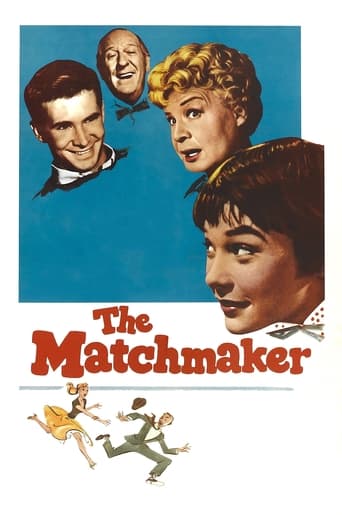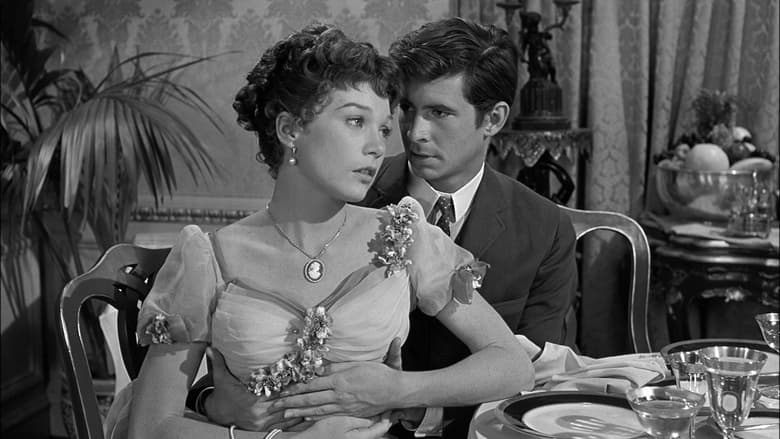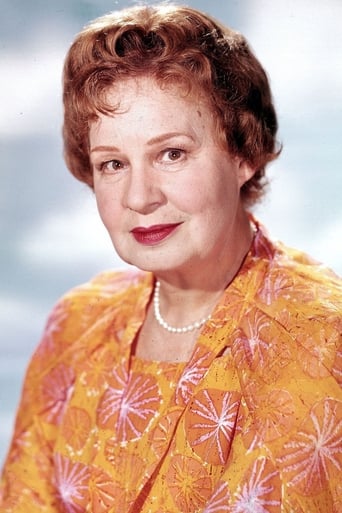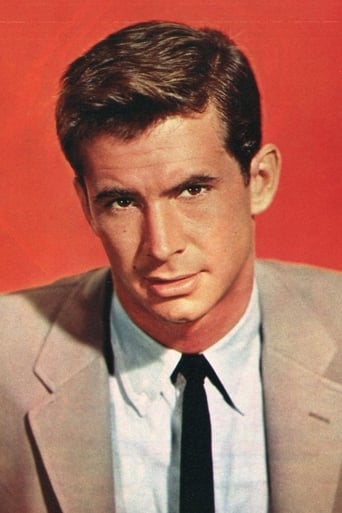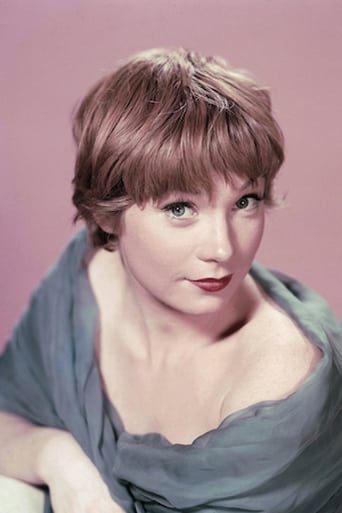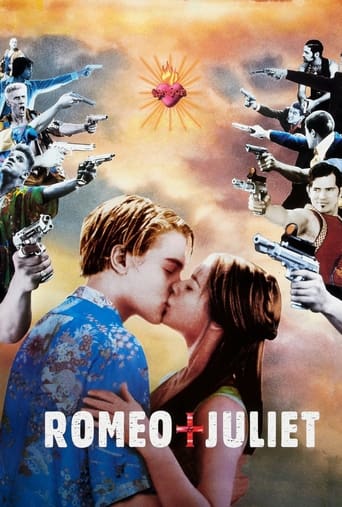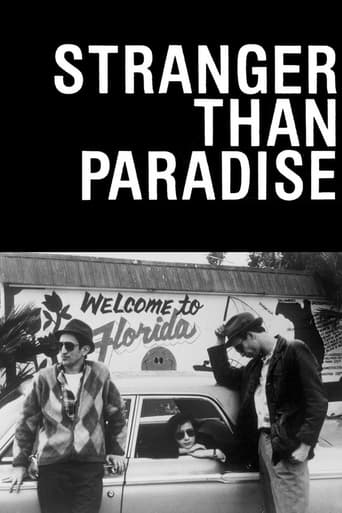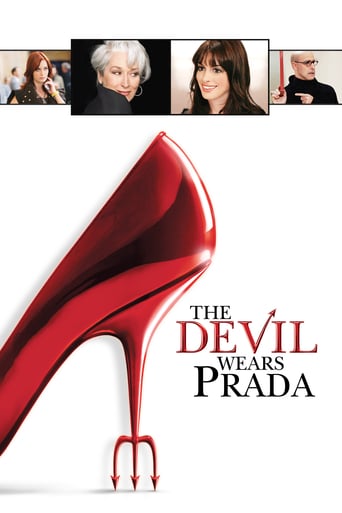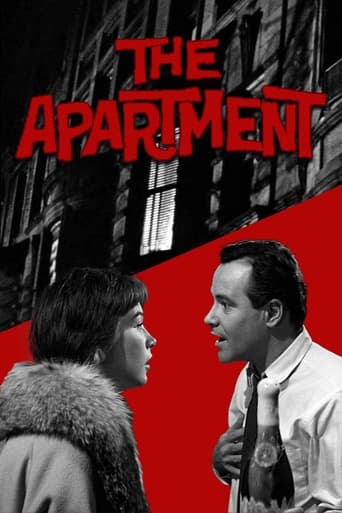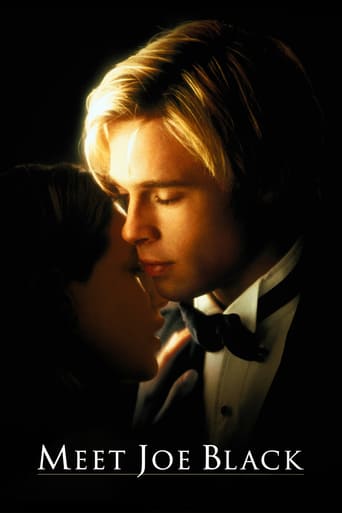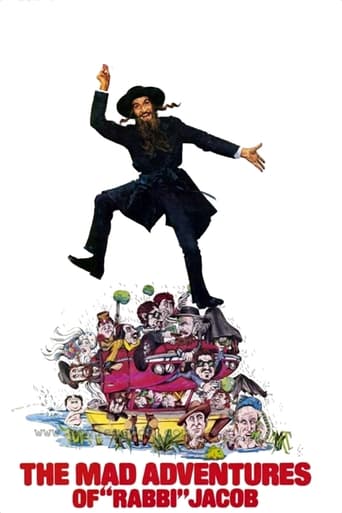The Matchmaker (1958)
Thornton Wilder's tale of a matchmaker who desires the man she's supposed to be pairing with another woman.
Watch Trailer
Cast


Similar titles
Reviews
Simply Perfect
Powerful
Absolutely Fantastic
By the time the dramatic fireworks start popping off, each one feels earned.
What a cute movie, especially from a sentimental skeptic like Thornton Wilder. And, okay, maybe sometimes it's a little TOO cute but it's still an awful lot of family fun, filled to bursting with innocence and apothegms.Anthony Perkins and Robert Morse are two young clerks in the Yonkers store that belongs to Paul Ford in 1884. What a skinflint. He asks for some special treatment from his barber then actually gives him a tip. The barber turns to the camera, holds up a single coin, and says bitterly, "A nickel -- after twenty years." Ford is interested in marrying someone "who will be a housekeeper while thinking she's a home owner." Something like that. The young woman he has in mind is Shirley MacLaine, who manages a millinery store in sophisticated New York City. But everyone's heart remains in the suburbs. "London, Paris, Yonkers," boasts Ford. This was before Son of Sam.He's a skinflint alright but, like Scrooge, he's completely undone and made to see the error of his ways in a kind of epiphany, by three agents: MacLaine, Perkins, and Shirley Booth as the matchmaker whom he winds up marrying. And after many tribulations and adventures, everybody lives happily -- joyously -- ever after, as long as MacLaine doesn't let Perkins catch her in the shower.Perkins, Morse, and MacLaine are funny but in a direct way. They're giddy with youth. The other characters are one dimensional. The two most interesting characters are Paul Ford as Horace Vandergelder, who would be a Master of the Universe if the universe were limited to Yonkers in 1884, and Booth as the manipulative and sneaky, but very wise, middle-aged woman who holds the play together. "Mister Vandegelder is always saying that everyone is a fool," she muses to the camera, "but he's a fool too, so the choice becomes -- a fool with others or a fool alone." One of the many aphorisms. The movie ends with the principals reciting the lessons they've learned from the day's adventure.Wilder was a writer of considerable range and often his comedy, like this farce, towed along in its wake a genuine moral, though more shadowy than the ones shouted out by the actors. This is a criticism of the Protestant Ethic and an endorsement of what used to be called existentialism. The Calvinist version of the Protestant Ethic was abroad in the land during the age of the robber barons, of whom Vandegelder is a minor example. An historic example is the father of Lizzie Borden. You know him -- "Lizzie Borden took an axe, gave her father forty whacks"? The last public act Andrew Borden is known to have performed, while strolling through his factory and heading home, was to stoop down and pick up a padlock lying on the floor. There was no key for it. He examined it for a minute, turning it over in his hands, wondering if he might some day find a use for it, then slipped it into his pocket. Waste not, want not. That's what Horace Vandegelder would have done.Now I'm about to run out of space so I won't have room to tell you all about how "The Matchmaker" is an endorsement of existentialism or how it links up with Arthur Schopenhauer's argument that we need to shed our inhibitions and follow our instincts. I was going to shoe horn Joseph Campbell in there too -- "Follow your bliss" and all that. I apologize for using so much space on the movie. I apologize abjectly. I grovel in mortification. I notice that all these apologies are taking up a lot of space too, and I'm sorry for that. I'll just have to conclude by recommending my forthcoming book: "Donald Duck and Schopenhauer: Laughter As Suicide."
After a lifetime of arranging couplings for others Dolly Levi has decided it's time that she settle down with somebody. Her target in her sights is merchant Horace Vandergelder in turn of the last century Yonkers, New York. Of course Horace the old goat is looking at young Irene Molloy. What to do, especially since his young clerk Cornelius Hackl has eyes for her also.Shirley Booth who originated many parts on the Broadway stage, but had few screen credits up to that time takes over the role that Ruth Gordon played on stage in the 1955-1957 season for 481 performances. Another Shirley named MacLaine with few screen credits at that point to her name plays young Irene. And the object of all this fuss is potbellied old Paul Ford giving one of his patented bellowing performances. It was interesting to read how Ford had come to the acting profession rather late in life. He certainly is ham enough that you wonder why didn't do this all of his life. Ford had just completed a four year run as the harried and harassed Colonel Hall, object of many of Sergeant Bilko's con games in the Phil Silvers Show. For most of his career Ford was a blusterer whether here or in The Music Man or Never Too Late. He looked a lot like Edgar Kennedy, but his boiling point was always quickly reached.Anthony Perkins who really did other things besides Norman Bates in Psycho is just fine as the wistful young clerk at Ford's mercantile and he's partnered in his adventures by young Robert Morse who repeated his stage role as Barnaby Tucker.Of course most know The Matchmaker as the basis for Hello Dolly and seeing it now is like seeing Shaw's Pygmalion which for better or worse is now known as My Fair Lady without the songs. Still The Matchmaker is fun to watch for the nostalgically inclined.
Some of Thornton Wilder's ironies about love and money get mangled in the dumbing-down of his stage material, and the theatrical conceits (characters constantly breaking down the fourth wall) probably worked better in the legit theater. And then there's that damned toy train, too cutesy by half. Nevertheless, this is a handsome and diverting little comedy with a great cast. Shirley Booth conveys some of the magnetism that made her a stage favorite; it's not necessarily great acting, but a warm and whimsical performance. Anthony Perkins and Shirley MacLaine are young love personified; I'm not sure either of them was ever this appealing again. Compliments, too, to Adolph Deutsch, who wrapped the whole thing up in a terrifically evocative waltz theme. It's a trifle, but a tasteful and well-paced trifle. I notice that whenever AMC shows it, I watch it, so that says something.
Hitchcock's "Psycho" marked a turning point in the career of Anthony Perkins. He stabbed his way into the consciousness of the American moviegoing public so forcefully and proved he was so effective at portraying a disturbed and disturbing personality that he never again played anything else. Even in "The Trial," where he is the hero and an uncomprehending victim, he plays the role in an odd way that doesn't evoke much sympathy from the viewer.Come and see what he was like before "Psycho!" He is boyish, cute, rather happy-go-lucky, and absolutely endearing. If for nothing else, "The Matchmaker" is worth watching just to actually like and feel warmly towards the actor who makes our hackles rise upon sight. A unique experience.The rest of the cast is good, too. The story is engaging, wittily written, and never mawkish or sappy. Head and shoulders above "Hello, Dolly."

